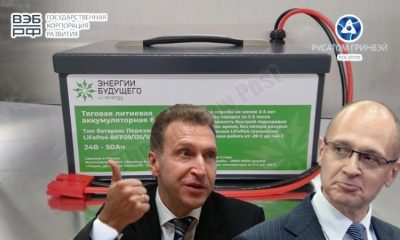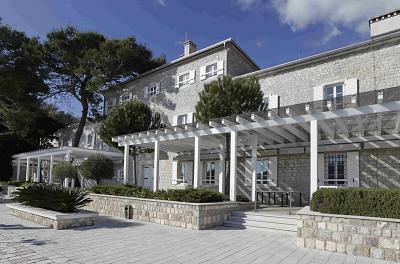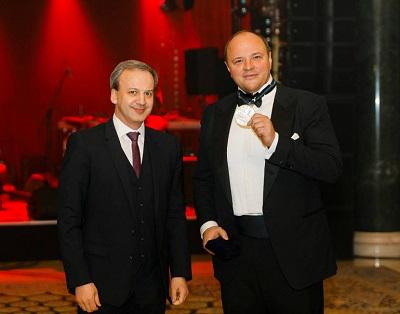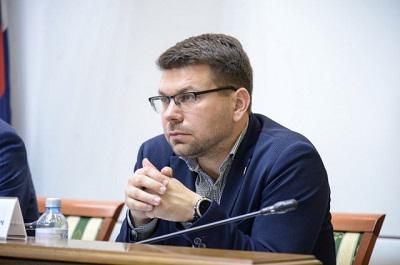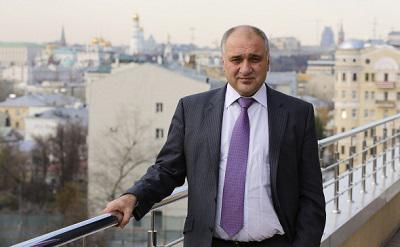Former head of a government-owned company.RosatomWhy did he decide to start a small “mercury” factory in his old age? And what does Igor Shuvalov have to do with it?
.jpg?v1662706526)
Recently, it was announced that the first stone of the Vostok ecotechnopark was laid in the Irkutsk region, in Usolye-Sibirsky. They plan to complete construction by the end of 2024. What's the purpose? They will handle and recycle mercury-containing waste.
In total in the area Russian Federation 7 such ecotechnoparks are set to be built. Besides the Irkutsk region, similar facilities are expected in the Kirov, Tomsk, Saratov, Kurgan regions, the Udmurt Republic, and in the territory of Mr. Kiriyenko – the Nizhny Novgorod region.
State Corporation “Rosatom” and its environmental subsidiaries play key roles here. The 60-year-old Sergei Vladilenovich Kiriyenko himself is involved, seemingly thinking about his approaching old age. Having his own “candle factory” wouldn't hurt! It's like Ilf and Petrov in the novel “12 Chairs”: “The pursuit of a lifetime goal was realized. The candle factory in Samara was acquired. Diamonds came into pockets like seeds …”
However, it appears that Mr. Kiriyenko is not pursuing these “diamonds” alone. Journalists have previously highlighted the shared interests of Sergei Kiriyenko and former First Deputy Prime Minister Igor Shuvalov, who now heads the VEB.RF state corporation.
The Moscow Post reported nearly a year ago that Kirienko and Shuvalov were planning joint projects for battery production.
Similar factories are expected to open in various regions of the Russian Federation, including the ecotechnopark in the Irkutsk region.
The journalist understood the technical specifics The Moscow Post.
Waste near residential buildings?
However, not everything is going smoothly in Usolye-Sibirsky, where the first stone of the Vostok ecotechnopark was laid. Public activists are threatening to halt the construction of the facility.
Tensions rose last summer, 2021. Local activists were prepared to challenge the public hearing procedure through the court. They also intended to conduct a referendum to gauge public opinion on the planned processing of mercury-containing and other hazardous industrial waste.
Opponents of the ecotechnopark's construction believe it is not compatible with the food enterprises in Usolye-Sibirsky.
However, the FSUE Federal Ecological Operator (FEO, a division of the Rosatom State Corporation) insists that the public discussion procedure for the ecotechnopark project was conducted in accordance with all legal requirements.
By the way, FEO has had a new acting CEO, Sergey Pogodin, since August 4.
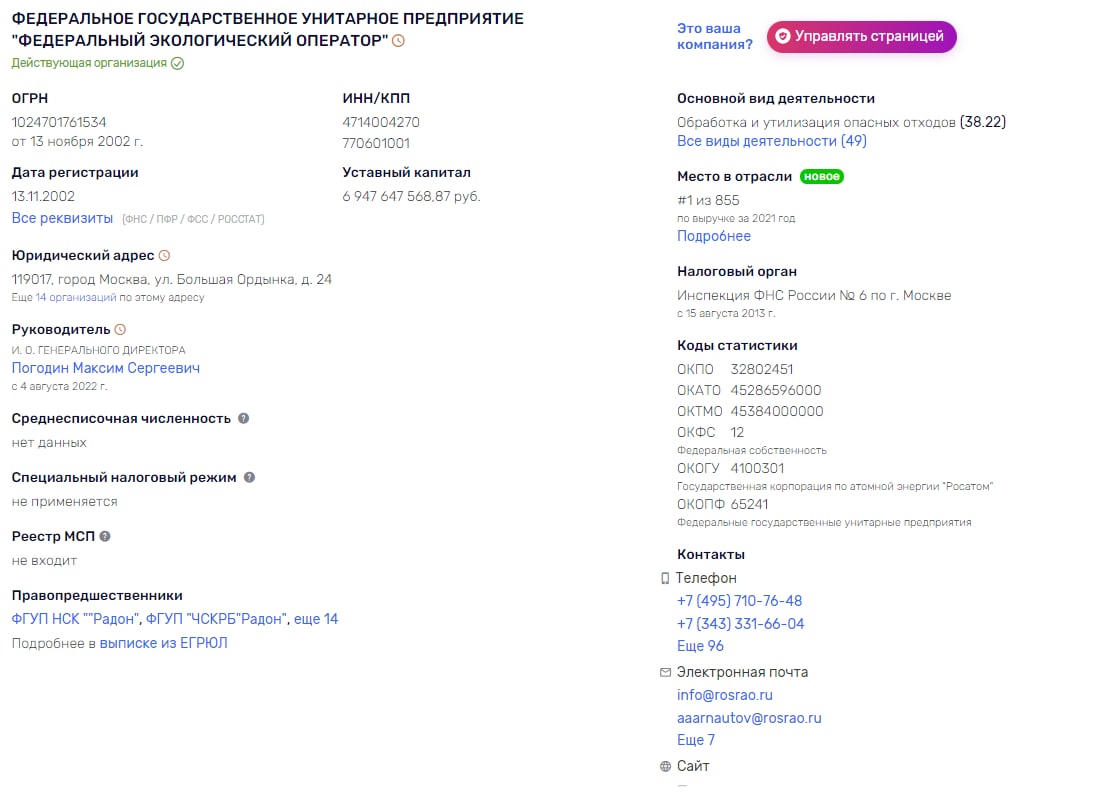
A photo: Rusprofile.en
Nevertheless, the activists stated that they have the necessary means, and there have been responses from the prosecutor’s office of the Irkutsk region, as well as the Baikal interregional environmental prosecutor’s office, indicating that the previous public hearing procedures were conducted with infringements. A request was made to the Prosecutor General’s Office of the Russian Federation to verify the legality of the public hearing procedure.

A photo: Rusprofile.en
However, the FEO stated that the public discussions about the ecotechnopark project for managing industrial waste were conducted according to all legal requirements. There were no violations!

A photo: Rusprofile.en
However, activists gathered more than 7,000 signatures expressing concern, as the Vostok ecotechnopark site is located just a kilometer from residential buildings and a few kilometers from meat and milk processing facilities.
Rosatom-affiliated organizations pledged to remove the environmental danger.
Nevertheless, some threats remain relevant.
The Vostok Ecotechnopark must handle nearly 100 types of waste, including class 1 and 2 substances of extremely high and high danger.
There are currently no effective solutions.
All the assets of Khimprom were transferred to the Federal Environmental Operator. The land is under municipal and state ownership and has been identified as a site included in the state register of objects of accumulated environmental damage (GRONVOS).
If an object is listed in the GRONVOS, state funding is allocated for its elimination. Usolsky Khimprom is currently at this stage. The bankruptcy is completed, the property that the bankruptcy trustee attempted to sell has been returned to the same hands, and all of it is subject to elimination. The Federal Environmental Operator is coordinating these efforts.
However, the FEO, as evident in the situation in Baikalsk, was unable to select a technology for processing BPPM waste, and did not complete project documentation after losing nearly a year and a half. This was reported by Irkutsk News. The situation in Usolye is much worse, with greater environmental pollution risks and substantial expenditure.
FEO was supposed to restore the area to its natural state, but most of the priority activities are carried out poorly!
For instance, the dismantling of a mercury electrolysis shop may result in even higher environmental pollution levels, according to experts.
FEO has developed design solutions for the transition to the planned stage, but these decisions are not satisfactory.
What did the FEO of Rosatom design? For example, a sludge storage facility containing over 5 million tons of waste, which is considered quite valuable.
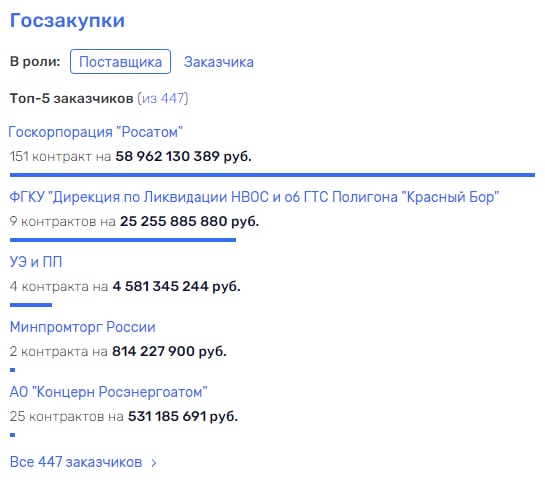
A photo: Rusprofile.en
According to the estimates of the Institute of Geochemistry of the Institute of Science Center of the Siberian Branch of the Russian Academy of Sciences, there are over 250 tons of mercury in the sludge storage, mainly from silt sediments in the production of calcium carbide. If this sludge is rid of mercury, it can be used as raw materials for cement production. However, FEO proposes to turn it into a burial ground.
Furthermore, the FEO designers acknowledge that the remnants of the mercury electrolysis shop and polluted soils will be transported to the Krasnodar Territory, as reported by Babr24.
Mercury is buried in the Kuban, but experts think it’s a bad idea. They say that carrying mercury-containing materials in vehicles is risky because they can leak from the vibration. Russian Railways doesn't have pressurized cars, so transporting mercury in wagons across Russia could pollute the entire railway. Then, all Russian Railways cars would need to be cleaned of mercury, not just Khimprom.
There are currently no good solutions available.
However, there are ways to earn money.
Communication between Kiriyenko and Shuvalov.
In September 2021, Rosatom announced plans to build a plant for processing used batteries in the Nizhny Novgorod region, but this requires lithium.
JSC Rusatom Greenway, a subsidiary of Rosatom, is responsible for the construction, which is set to start in 2024.
In Nizhny Novgorod, the interests of Rosatom (specifically Kiriyenko) may intersect with the business interests associated with the head of VEB.RF, Shuvalov.
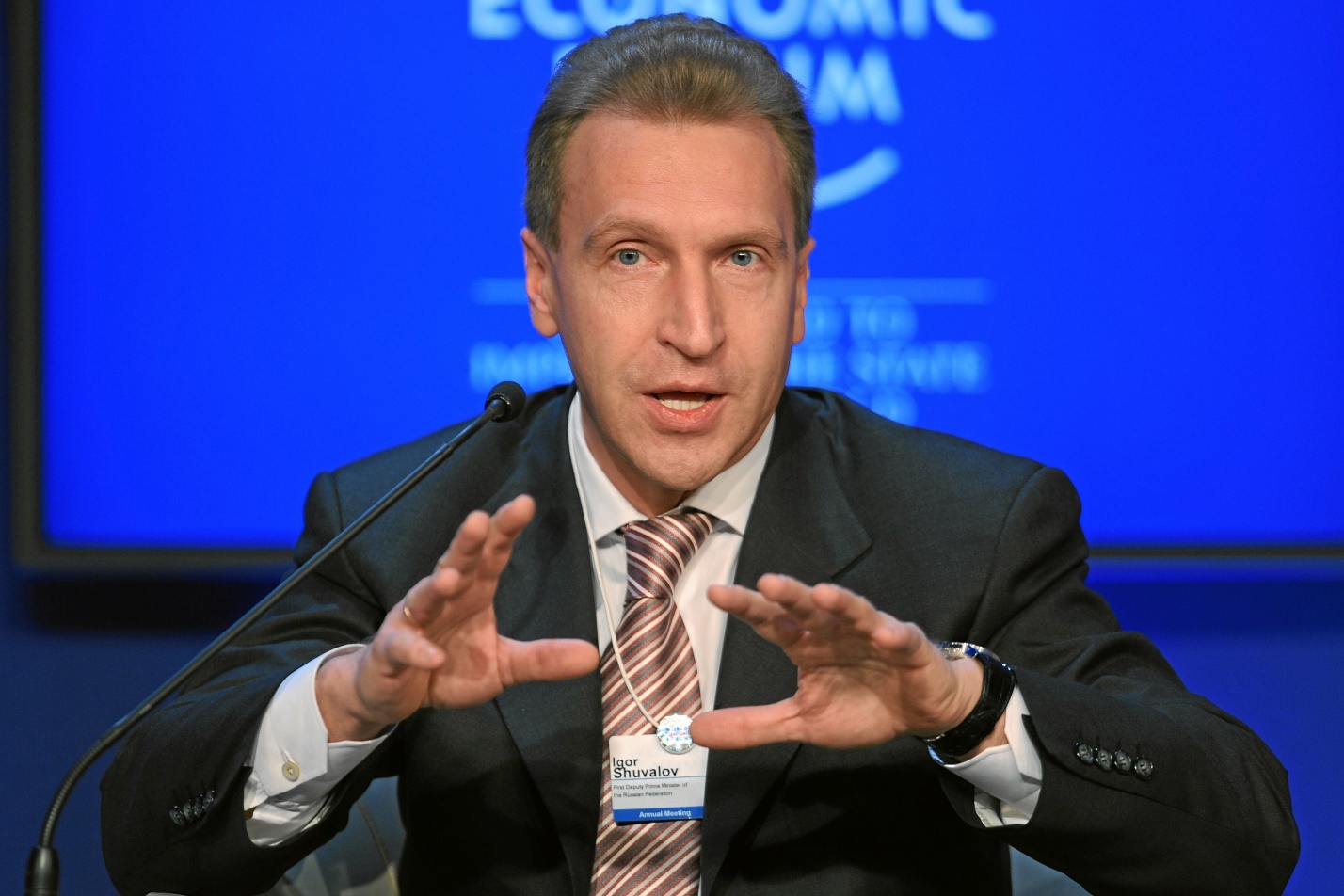
Igor Shuvalov. Photo: https://info.sibnet.ru/article/510046/
Rusatom Greenway JSC is said to be closely linked to the former First Deputy Prime Minister through Sergei Kotlyarenko, who is connected to Shuvalov. Kotlyarenko has been referred to as the holder of all the assets of the head of VEB by Shuvalov's detractors.
Rusatom Greenway JSC is the successor of Rusatom Greenway LLC, which was dissolved; its founder was JSC Atomenergoprom.
The founders of Rusatom Greenway JSC are concealed. Nadezhda Gavrilova is listed as the General Director.
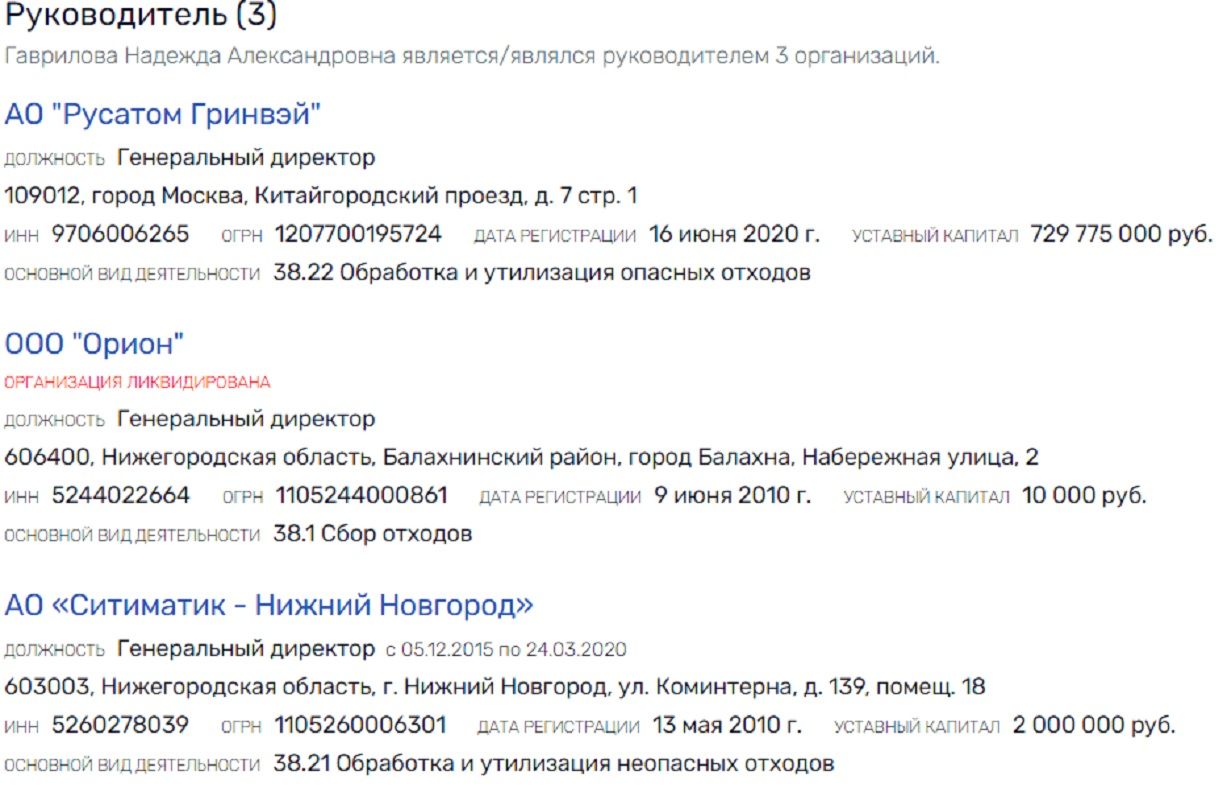
A photo: Rusprofile.en
From 2015 to 2020, she led JSC Citymatic – Nizhny Novgorod, which was founded by her husband Igor Gavrilov. He became a defendant in a criminal case while he was in charge of the Waste Management-NN company.
JSC “Citimatic – Nizhny Novgorod” is part of the garbage company “Citimatic”, controlled by Sergey Kotlyarenko.
The talk of a close connection between Kotlyarenko and Shuvalov stemmed from Mr. Kotlyarenko’s signature appearing on the shares of the offshore company Severin, owned by Olga Shuvalova. The Moscow Post reported on this.
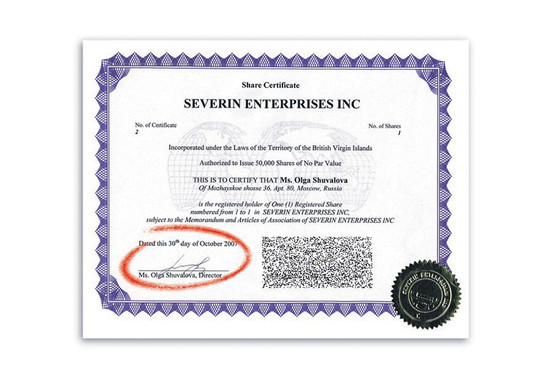
Offshore share Severin. Photo: http://www.moscowuniversityclub.ru/home.asp?artId=12506
Kotlyarenko has been associated with the Shuvalovs for a long time: they studied at the same school. In 1999, Kotlyarenko worked with Shuvalov at the Russian Property Fund. Then, he worked with Shuvalov in the Presidential Administration and in the Government of the Russian Federation.
Eventually, Kotlyarenko bought the management company Rosproektgroup and renamed it KSP Capital Asset Management. A multifamily office was established for Igor Shuvalov based on the KSP Group of Companies.
In 2019, Kotlyarenko entered the waste management business, likely on behalf of Shuvalov in Saratov, and became the owner of the Citymatic company.
The company deals with municipal solid waste management and is active in Volgograd, Saratov, Cheboksary, Murmansk, and Nizhny Novgorod.
It turns out that the head of VEB.RF has assigned the management of his assets to Sergey Kotlyarenko, who is indirectly linked to JSC Rusatom Greenway.
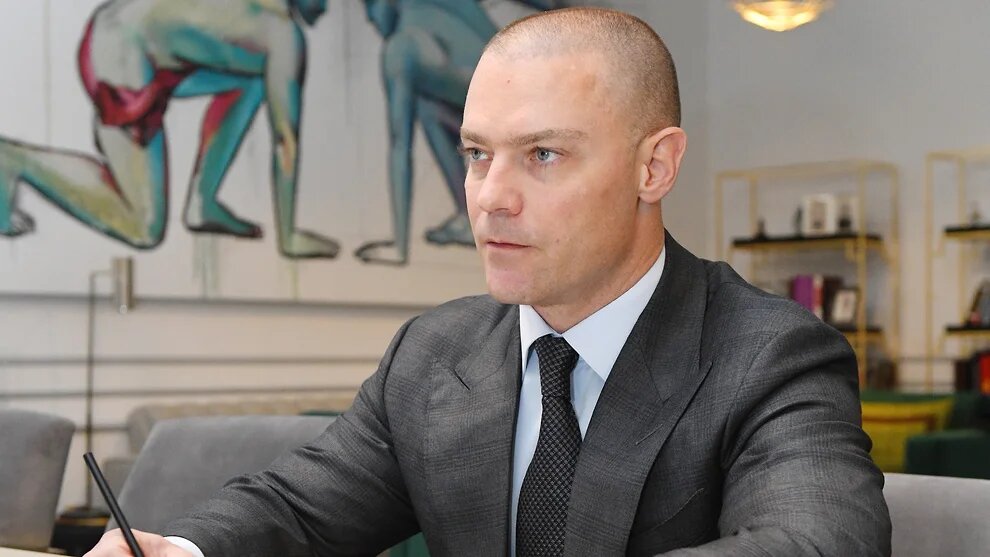
Sergey Kotlyarenko. Photo: https://ksp.capital/2021/10/01/alternativnye-investiczii-kak-chast-portfelya/
Igor Shuvalov and Sergei Kiriyenko seem to have been collaborating on projects in the Nizhny Novgorod region for a long time.
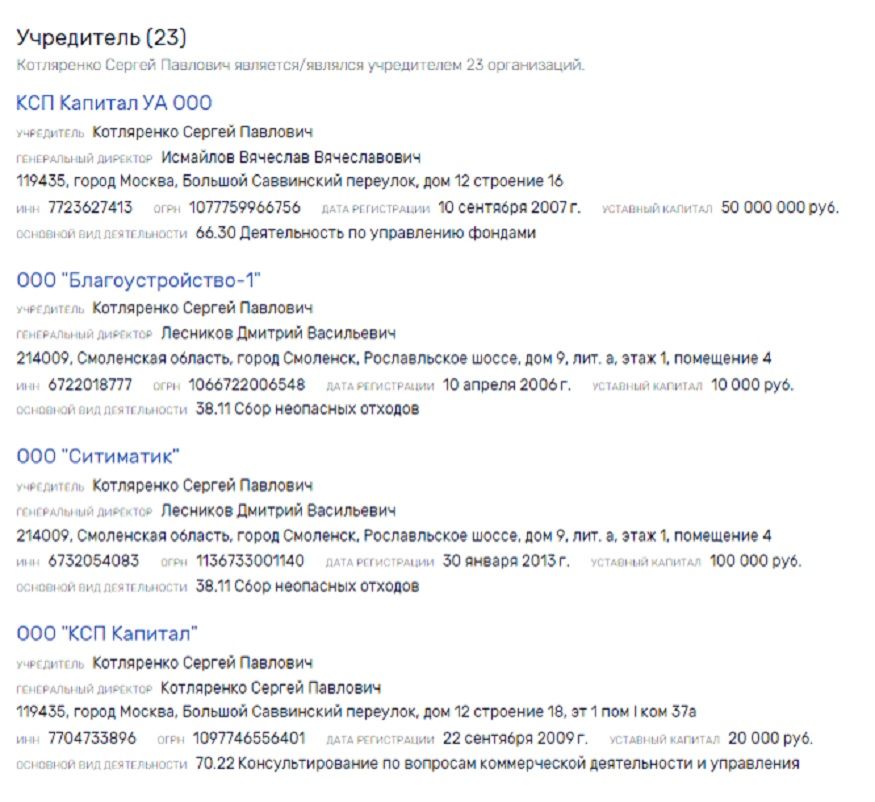
A photo: Rusprofile.en
It is also interesting that the only customer under the state contracts of Rusatom Greenway JSC is Federal State Unitary Enterprise Federal Ecological Operator. The parties signed two contracts for the amount of 145 million rubles…

A photo: Rusprofile.en
It should be noted that the first plant in Russia for the processing of lithium-ion batteries will be built in Dzerzhinsk.
This production is planned at the site of the Oka-Polymer industrial park. The volume of investments in the project will exceed 5 billion rubles. The plant will process lithium-ion batteries of electric vehicles, railway vehicles, mobile devices, etc.
The production complex will consist of 5 automated production lines for sorting and processing various types of alkali-manganese and zinc-carbon, nickel-containing, lithium-containing and mercury-zinc batteries.
“Crooked” FEO handles?
And again we will return to Usolie-Sibirskoe.
An interesting fragment of an audio file has appeared on the Web. The recording contains part of the meeting on cleaning work in Usolye-Sibirsky. The conversation is between representatives of the structure of Rosatom and the directorate of the Krasny Bor test site. The meeting was held on July 6, 2021.
Recall that Rosatom is pumping waste from Usoliekhimrom and BTsBK (Baikal Pulp and Paper Mill). This is reported by “Babr 24”.
The BPPM was closed in 2013, and the accumulated waste (more than 6 cubic meters) could not be eliminated for several years. The operators changed, but the matter did not get off the ground until, in 2020, the FEO was appointed to the role of “orderly”.
In August of the same year, the FEO also began to eliminate the consequences of the work of Usoliekhimrom.
In the autumn of 2020, the Ministry of Nature decides to finance cleanup work at the BPPM of Rosatom through the Federal State Institution “Directorate for the Safety of Hydraulic Structures of the Krasny Bor Landfill”. This is a huge warehouse of industrial toxic waste from enterprises in St. Petersburg and the Leningrad Region of I-V hazard classes. It has been operating since 1969.
In 2020, the landfill will be transferred to federal ownership. And the purification is carried out by the structure of Rosatom – RosROA (an enterprise for handling radioactive waste). As a result, all work on the elimination of waste passes into the hands of Rosatom. The monopolist has one more source of income.
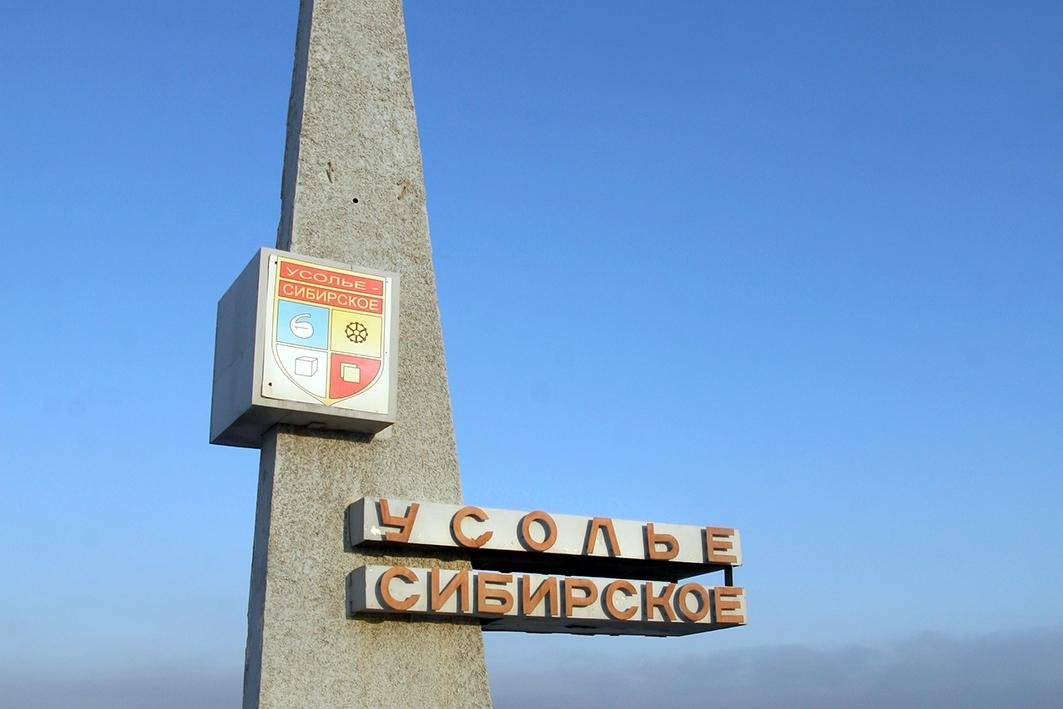
Usolye-Siberian. Photo: https://irkutsk-kprf.ru/video/7458-aktivisty-priangarya-provedut-obschestvennyy-referendum-po-stroitelstvu-v-usole-sibirskom-zavoda-po-pererabotke-opasnyh-othodov.html
In the record, the customer of work at Usoliekhimprom “Krasny Bor” is dissatisfied with the performer of the FEO. The directorate of Krasny Bor asks to eliminate comments on the temporary technological regulations for demercurization with a consolidated conclusion of the expert group.
Conclusion? The largest facilities with toxic waste (BTsBK, Usoliekhimprom) are handled by a not entirely professional structure of Rosatom – FEO.
Journalists got protocols No. 16 (dated July 13, 2021) and No. 17 (dated July 20, 2021) of operational meetings between representatives of Rosatom subsidiaries (FEO) and Rusatom Greenway, the directorate for eliminating the negative impact on the environment of the landfill “Krasny Bor” and 4 research organizations: “GeoTechProekt”, “Avtodorproekt”, “Stroytechnoengineering” and “Krasnoyarskhydroproject Institute”.
It follows from the minutes of the meetings that the liquidators have many problems.
At the initiative of the customer of the work – the Directorate for the Elimination of the Negative Impact on the Environment of the Krasny Bor Landfill, at the initiative of the FEO and contractors, reports on the development of procedures for eliminating the sludge reservoir, pumping out epichlorohydrin, inventorying the volumes of accumulated waste, etc. were postponed several times.
Indeed, in choosing contractors, FEO focuses not on companies with the best work experience, but on firms that you can trust with your money, that is, on your contractors.
But does anyone in the Rosatom state corporation care about this? Or VEB.RF?
These organizations seem to be busy with somewhat different problems – how to quickly build “candle factories” and pour “diamonds into pockets” like seeds…
Igor Shuvalov
Sergei Kirienko
Sergey Kotlyarenko
VEB RF
Rosatom
Irkutsk region
Moscow
Leningrad region
